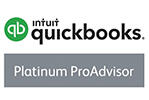New HMRC powers of discovery will be retrospective
The government has confirmed that the Finance Bill will include changes to discovery assessments, allowing HMRC to recoup unpaid high income child benefit charges going back almost ten years. What’s the full story?

The unpopular high-income child benefit charge (HICBC) was introduced in 2013. Despite HMRC administering child benefit payments, it is still finding taxpayers that have not declared the benefit in previous years. Once the Finance Bill is enacted, HMRC will be able to open discovery assessments to collect any unpaid tax charges from as far back as 2013. However, the change will not apply to those who have already appealed against such assessments.
This addition to the Finance Bill is a result of the Upper Tribunal decision in Wilkes v HMRC, which found that HMRC did not have the power to impose the HICBC by means of discovery assessment as there was no income which ought to have been assessed. As a result, Mr Wilkes did not have to pay the tax charges. Individuals with income over £50,000, where either they or their partner receives child benefit, could soon receive a large unexpected tax bill from several years ago.
Related Topics
-
CT61
-
Repayment thresholds for student finance confirmed
Repaying student finance can seem complicated, with a number of different plan types each having different repayment thresholds. The thresholds for the forthcoming year have just been confirmed. What’s the full story?
-
Advance assurance pilot confirmed
There have been a number of changes to how research and development tax credits are claimed in recent years. HMRC has now confirmed that a pilot of a new clearance procedure will begin later this year. What do we know so far?



 This website uses both its own and third-party cookies to analyze our services and navigation on our website in order to improve its contents (analytical purposes: measure visits and sources of web traffic). The legal basis is the consent of the user, except in the case of basic cookies, which are essential to navigate this website.
This website uses both its own and third-party cookies to analyze our services and navigation on our website in order to improve its contents (analytical purposes: measure visits and sources of web traffic). The legal basis is the consent of the user, except in the case of basic cookies, which are essential to navigate this website.